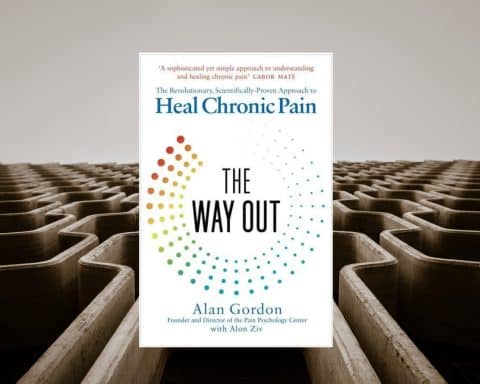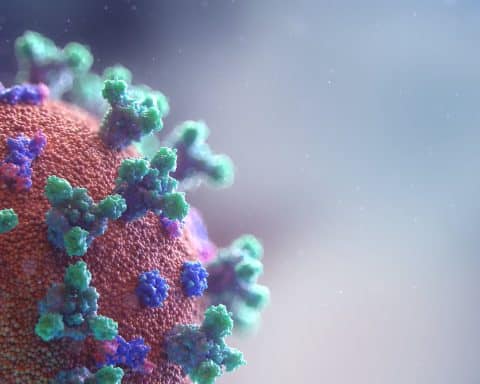David Thompson is Professor of Nursing, School of Nursing and Midwifery, Queen’s University Belfast, Belfast, UK.
Hiyam Al-Jabr is a Research Associate, Integrated Care Academy, University of Suffolk, Ipswich, UK.
Karen Windle is a Senior Research Fellow, Integrated Care Academy, University of Suffolk, Ipswich, UK.
Chantal Ski is Professor and Director, Integrated Care Academy, University of Suffolk, Ipswich, UK.
Long COVID, the post-acute sequelae of SARS-CoV-2 infection, is seen in growing numbers of people and has been highlighted as the only illness to be initially identified by individuals coming together on social media.1 Each reports a constellation of symptoms that are debilitating, persistent and unexplained, often limiting day-to-day activities.2 These include headaches, fatigue, breathlessness, mood changes, dizziness, insomnia, joint aches and pain. While some are reported as persistent and others may be more ‘sporadic’, triggered by e.g., exercise, all such symptomology is underpinned by feelings of fear, uncertainty, anxiety and depression, especially when many patients identify that their ‘quest to be seen and cared for’1 by health care practitioners has failed.
It is crucial that the patient narrative is understood.
In addition, our existing fragmented health and care environment, focused on symptoms and specialities, is not suitable for managing long COVID4, not least as the collection of respiratory, neurological, gastrointestinal and cardiac symptomology demands a range of specialist, secondary care based support. Such care is becoming increasingly unlikely owing to the currently estimated 5.6 million patients in England alone awaiting hospital-based treatment.
Our existing fragmented health and care environment, focused on ….. specialities, is not suitable for managing long COVID.
The first port of call for many people with long COVID is usually their GP, from whom they need belief in their symptoms, empathy and understanding.5 Ongoing support by primary care professionals during recovery and rehabilitation is crucial, but this can be bolstered by other supportive measures to ameliorate the impact of presenting symptoms. While the ideal would be the GP ‘wrapping services’ around the patient, navigating and delivering appropriate referral pathways on behalf of the patient,6 it could be argued that such support will be unavailable given the pressures on primary care, the tsunami of post-COVID patients and the on-going workforce challenges.
Ongoing support by primary care … during recovery and rehabilitation is crucial, but this can be bolstered by other supportive measures.
Although originally developed for helping people with mental health problems, the OHP has been used successfully with a variety of other chronic conditions such as stroke and chronic kidney disease.
We hope that as we move long COVID patients through the OHP programme, we will see positive changes in their symptomology to support their recovery. While we do not claim that this approach may be a panacea for all, it may be a useful adjunct to improving health and wellbeing in the long COVID population.
References
1. Rushforth A, Ladds E, Wieringa S, Taylor S, Husain L, Greenhalgh T. Long Covid – The illness narratives. Soc Sci Med. 2021;286:114326.
2. ONS. Prevalence of ongoing symptoms following coronavirus (COVID-19) infection in the UK: 2 September 2021. Available at: https://www.ons.gov.uk/peoplepopulationandcommunity/healthandsocialcare/conditionsanddiseases/bulletins/prevalenceofongoingsymptomsfollowingcoronaviruscovid19infectionintheuk/2september2021. (Accessed, 10.09.21).
3. Mahase E. Covid-19: Nearly 20% of patients receive psychiatric diagnosis within three months of covid, study finds. BMJ. 2020;371:m4386.
4. Sivan M, Rayner C, Delaney B. Fresh evidence of the scale and scope of long covid. BMJ 2021;373:n853.
5. Kingstone T, Taylor AK, O’Donnell CA, Atherton H, Blane DN, Chew-Graham CA. Finding the ‘right’ GP: a qualitative study of the experiences of people with long-COVID. BJGP Open. 2020;4(5).
6. Atherton H, Briggs T, Chew-Graham C. Long COVID and the importance of the doctor-patient relationship, Br J Gen Pract. 2021;71:54-55.
Featured image by Alex Azabache at Unsplash








